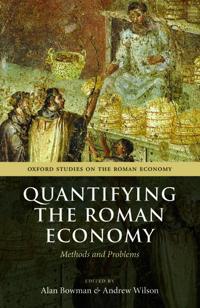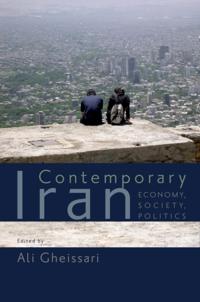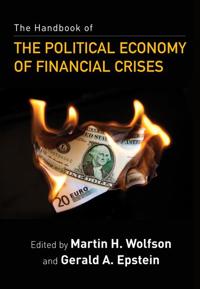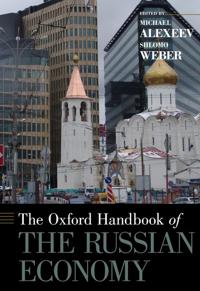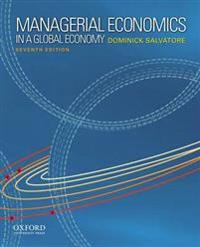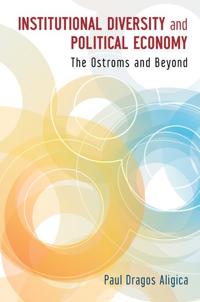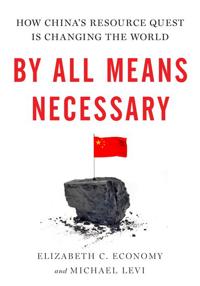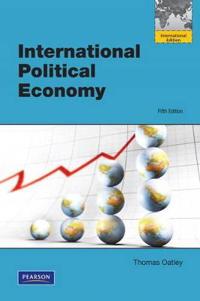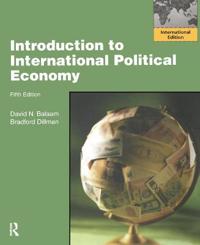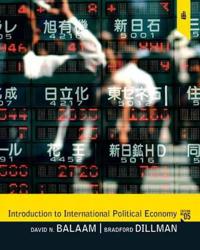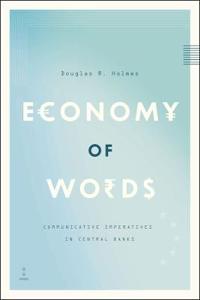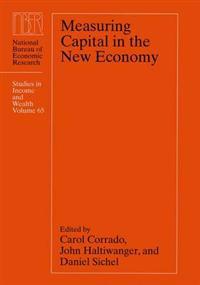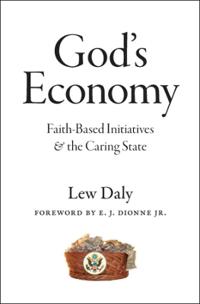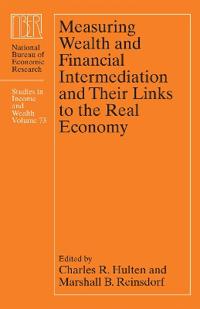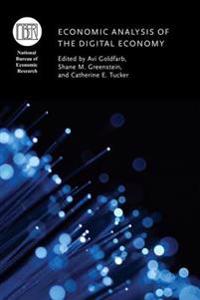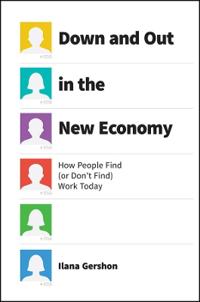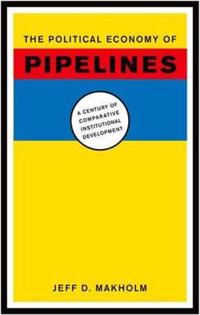The Political Economy of Collective Skill Formation (Inbunden)
avArlene G. Fink
ISBN: 9780199599431 - UTGIVEN: 201111Education, skill formation, and training continue to be important areas of consideration for both public policy and research. This book examines the particular types of vocational training known as collective skill formation systems, whereby the training (often firm-based apprenticeships) is collect[...]
The Political Economy of the Service Transition (Pocket)
avAnne Wren
ISBN: 9780199657292 - UTGIVEN: 201303Over the past four decades the wealthiest OECD economies-in Europe, North America, and Australasia- have faced massive structural change. Industrial sectors, which were once considered the economic backbone of these societies, have shrunk inexorably in terms of size and economic significance, while [...]
Global Political Economy (Häftad)
ISBN: 9780199666010 - UTGIVEN: 2014-01The fourth edition of this popular text is a sophisticated and authoritative introduction to the field of global political economy that combines history and theoretical approaches with contemporary issues and debates. International experts have updated the new edition to include material on the on-g[...]
Quantifying the Roman Economy (Pocket)
avAlan (EDT) Bowman, Andrew (EDT) Wilson, Alan (EDT) Bowman
ISBN: 9780199679294 - UTGIVEN: 2013-07This collection of essays is the first volume in a new series, Oxford Studies on the Roman Economy. Edited by the series editors, it focuses on the economic performance of the Roman empire, analysing the extent to which Roman political domination of the Mediterranean and north-west Europe created th[...]
Contemporary Iran Economy, Society, Politics
ISBN: 9780199702855 - UTGIVEN: 2015-06In this volume, an imposing roster of both internationally renowned Iranian scholars and rising young Iranian academics offer essays - many based on recent fieldwork - on the nature and evolution of Iran's economy, significant aspects of Iran's changing society, and the dynamics of its domestic and [...]
The Political Economy of Violence Against Women (Häftad)
avJacqui True
ISBN: 9780199755912 - UTGIVEN: 201209Violence against women is a major problem in all countries, affecting women in every socio-economic group and at every life stage. Nowhere in the world do women share equal social and economic rights with men or the same access as men to productive resources. Economic globalization and development[...]
The Handbook of the Political Economy of Financial Crises (Inbunden)
ISBN: 9780199757237 - UTGIVEN: 2013-05The Great Financial Crisis that began in 2007-2008 reminds us with devastating force that financial instability and crises are endemic to capitalist economies that lack powerful and dynamically changing financial regulations that can keep the powerful forces of leverage and credit within sustainable[...]
The Oxford Handbook of the Russian Economy (Inbunden)
ISBN: 9780199759927 - UTGIVEN: 201307By 1999, Russia's economy was growing at almost 7% per year, and by 2008 reached 11th place in the world GDP rankings. Russia is now the world's second largest producer and exporter of oil, the largest producer and exporter of natural gas, and as a result has the third largest stock of foreign excha[...]
Managerial Economics in a Global Economy (Inbunden)
avDominick Salvatore
ISBN: 9780199811786 - UTGIVEN: 201107Reflecting the highly globalized nature of tastes, production, labor markets, and financial markets in today's world, Managerial Economics in a Global Economy, Seventh Edition, is ideal for undergraduate and MBA courses in managerial economics. Thoroughly adopting a global perspective, it synthesize[...]
Institutional Diversity and Political Economy (Inbunden)
avPaul Dragos Aligica
ISBN: 9780199843909 - UTGIVEN: 2013-11Elinor Ostrom, co-recipient of the 2009 Nobel Prize in economics, argues that in studying social order, we should not be limited to only the conceptions of order derived from the work of Adam Smith and Thomas Hobbes. To be precise, we should not limit ourselves to theoretical frameworks of The State[...]
By All Means Necessary (Inbunden)
avElizabeth Economy
ISBN: 9780199921782 - UTGIVEN: 2014-03In the past thirty years, China has transformed from an impoverished country where peasants comprised the largest portion of the populace to an economic power with an expanding middle class and more megacities than anywhere else on earth. This remarkable transformation has required, and will continu[...]
Growth of the International Economy 1820-2000
ISBN: 9780203199350 - UTGIVEN: 2015-06This text is widely acknowledged to be the best available introduction to the study of the international economy as a mechanism for diffusing modern economic growth between nations. Updating the story to the present day, this edition covers the latest developments in international economics. Signifi[...]
Global Political Economy (Häftad)
avTheodore H. Cohn
ISBN: 9780205006229 - UTGIVEN: 2011-02Praised for its authoritative coverage, Global Political Economy places the study of IPE in its broadest theoretical context. This text not only helps students understand the fundamentals of how the global economy works but also encourages them to use theory to more fully grasp the connections betw[...]
International Political Economy (Häftad)
avThomas H. Oatley
ISBN: 9780205006281 - UTGIVEN: 201102Broadly viewing the global economy as a political competition that produces winners and losers, International Political Economy holistically and accessibly introduces the field of IPE toreaders with limited background in political theory, history, and economics. Thisbook surveysmajor interests and i[...]
Introduction to International Political Economy (Häftad)
avDavid N. Balaam, Bradford L. Dillman
ISBN: 9780205008643 - UTGIVEN: 201007Updated in a new 5th edition, this book offers a complete and accessible overview of how politics and economics collide in a global context. It surveys the theories, institutions, and relationships that characterize IPE and highlights them in a diverse range of regional and transnational issues. The[...]
International Political Economy
ISBN: 9780205060634 - UTGIVEN: 2011-02Broadly viewing the global economy as a political competition that produces winners and losers, International Political Economy holistically and accessibly introduces the field of IPE to students with limited background in political theory, history, and economics.This text surveys major interests an[...]
Introduction to International Political Economy (Häftad)
avDavid N. Balaam, Bradford L. Dillman
ISBN: 9780205791385 - UTGIVEN: 201006Updated in a new 5th edition, this book offers a complete and accessible overview of how politics and economics collide in a global context. It surveys the theories, institutions, and relationships that characterize IPE and highlights them in a diverse range of regional and transnational issues. The[...]
Economy of Words: Communicative Imperatives in Central Banks (Inbunden)
avDouglas R. Holmes
ISBN: 9780226087597 - UTGIVEN: 2014-01-10Economy of Words (Häftad)
ISBN: 9780226087627 - UTGIVEN: 2014-01Markets are artifacts of language - so Douglas R. Holmes argues in this deeply researched look at central banks and the people who run them. Working at the intersection of anthropology, linguistics, and economics, he shows how central bankers have been engaging in communicative experiments that pred[...]
Measuring Capital In The New Economy (Inbunden)
avCarol (EDT) Corrado, John (EDT) Haltiwanger, Daniel (EDT) Sichel
ISBN: 9780226116129 - UTGIVEN: 2005-10As the accelerated technological advances of the past two decades continue to reshape the United States' economy, intangible assets and high-technology investments are taking larger roles. These developments have raised a number of concerns, such as: how do we measure intangible assets? Are we accur[...]
God's Economy (Inbunden)
avLew Daly, E. J. Dionne, Lew Daly
ISBN: 9780226134833 - UTGIVEN: 2009-12President Obama has signaled a sharp break from many Bush administration policies, but he remains committed to federal support for religious social service providers. Like George W. Bush's faith-based initiative, though, Obama's version of the policy has generated loud criticism - from both sides of[...]
Measuring Wealth and Financial Intermediation and Their Links to the Real Economy
ISBN: 9780226204260 - UTGIVEN: 2015-02More than half a decade has passed since the bursting of the housing bubble and the collapse of Lehman Brothers. In retrospect, what is surprising is that these events and their consequences came as such a surprise. What was it that prevented most of the world from recognizing the impending crisis a[...]
Economic Analysis of the Digital Economy (Inbunden)
avAvi Goldfarb
ISBN: 9780226206844 - UTGIVEN: 2015-06As the cost of storing, sharing, and analyzing data has decreased, economic activity has become increasingly digital. But while the effects of digital technology and improved digital communication have been explored in a variety of contexts, the impact on economic activity-from consumer and entrepre[...]
Down and Out in the New Economy
ISBN: 9780226452142 - UTGIVEN: 2017-04Finding a job used to be simple. You'd show up at an office and ask for an application. A friend would mention a job in their department. Or you'd see an ad in a newspaper and send in your cover letter. Maybe you'd call the company a week later to check in, but the basic approach was easy. And once [...]
The Political Economy of Pipelines
ISBN: 9780226502106 - UTGIVEN: 2012-03With global demand for energy poised to increase by more than half in the next three decades, the supply of safe, reliable, and reasonably priced gas and oil will continue to be of fundamental importance to modern economies. Central to this supply are the pipelines that transport this energy. And wh[...]




